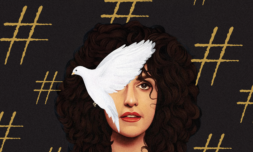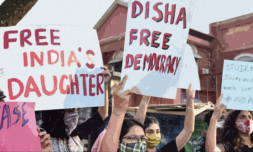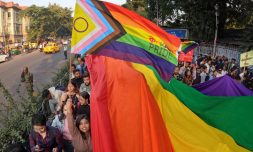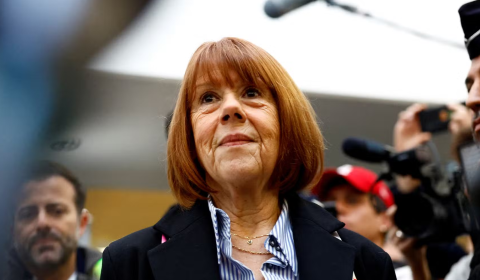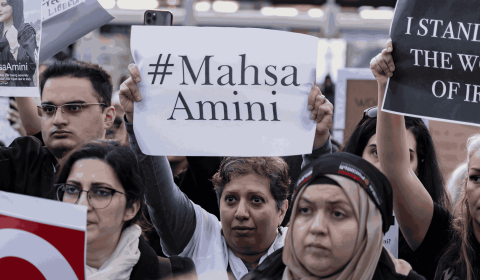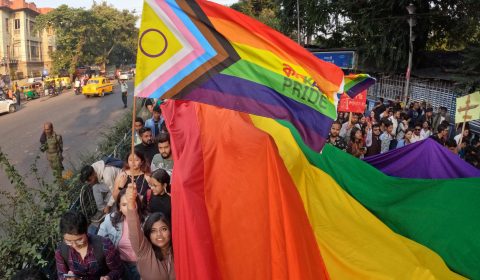We spoke to Kiana and Ali Rahmani about the global campaign called ‘Free Narges Coalition’, launched at the Nobel Peace Center on September 5th – led by PEN America, Reporters Without Borders, and Front Line Defenders – to free their mother, Laureate Narges Mohammadi.
Narges Mohammadi has been imprisoned for ten years in Iran, including 135 days in solitary confinement, and now faces another 11 years for her advocacy of women’s equal rights and the abolition of the death penalty.
The very reasons for her sentencing are the same causes that earned her the Nobel Peace Prize in 2023.
Kiana and Ali Rahmani, her children, whom she hasn’t even seen in photos for years, accepted the award on her behalf at the ceremony and are now at the forefront of a coalition dedicated to securing her freedom.
As of today, she cannot even contact her lawyer to make requests. We had the honor of speaking with her children about her situation and the goals of the Free Narges Coalition.
Even though we cannot reach her directly, her letter on the second anniversary of Mahsa Amini’s death was shared with us through the Narges Foundation.
Before starting the interview, we’d like to share a quote from the letter.
‘In these two difficult and agonizing years, although the wounds have left marks on the bodies of those exhausted and tormented by oppression, discrimination, and tyranny, and despite the challenging road ahead, we all know that nothing is as it was before. The people feel the greatest change in their beliefs, lives, and society.’
View this post on Instagram
![]()
To start, I’d like to reference Kiana’s interview at the Nobel Peace Center, where she described activism as a ‘family business.’ While it’s not uncommon for families to unite around a shared cause, it’s rare to see children at the forefront of a global effort to free their mother. Could you tell us more about the work of the Narges Foundation and your roles within it?
Kiana Rahmani: The need for an international foundation to continue our mother’s work outside Iran has always been felt, but after receiving the Nobel Peace Prize, this need has become even more apparent. Given the great responsibility we feel and with our 18th birthdays approaching, we hope we can rise to this challenge.
We now feel a duty to focus more intensely and work even harder to amplify our mother’s voice and that of other political prisoners and oppressed women in Iran to the world. We intend to use the platform provided by the media and the Nobel Peace Prize as a powerful tool to convey the voices of activists inside the country more loudly and effectively.
My mother has spent more than 10 years of her life in prison, with 135 of those days in solitary confinement. Despite all the suffering she has endured and her physical condition, she is still expected to serve nearly 11 more years in prison. This is truly brutal.
For many young people, it’s challenging to follow in their parents’ footsteps. In your case, you’re also stepping into the role of being your mother’s voice, especially when you read the letters she has written. This must carry immense responsibility. How do you manage this role in your activism, and how do you support each other through it?
Kiana Rahmani: Since the ceremony, our lives have changed, and we feel a greater sense of responsibility. We are now more committed than ever to defending our mother and other political prisoners, and we see it as our duty to raise awareness about the dire situation in Iran.
Representing our mother and her lifelong fight for human rights was a great honor, but it also placed a heavy burden on our shoulders. It highlighted her absence even more, and we often wished that she could have been there to receive the award and deliver her speech.
We were saddened that she could not attend the ceremony, and the restrictions placed on her phone calls and visits added to our concerns. We hoped that receiving such an award would lessen the pressure on her, but in reality, the situation worsened. Each time she sent a letter, more sentences were issued by the authorities.
September 16 marks the second anniversary of Mahsa Amini’s death. From your perspective, what has changed in Iran since that day?
Ali Rahmani: Iran, under the rule of the Islamic Republic, is a land where political and women’s rights activists face ruthless repression. Political prisoners endure extremely harsh and unbearable conditions, and women suffer daily from various forms of oppression and humiliation.
In Iran, even the smallest act of protest can lead to arrest, torture, and even execution. Last year, grieving mothers buried their children simply because their hair was visible – a pain that is too great to bear.
Civil institutions are severely repressed, and holding educational courses is highly restricted. Iranian women engage in a daily, face-to-face struggle against the regime and the morality police in the streets, yet this fight continues with courage. The resistance against mandatory hijab and other forms of repression persists despite all the pressures and threats, and families seeking justice are under constant pressure and harassment.










